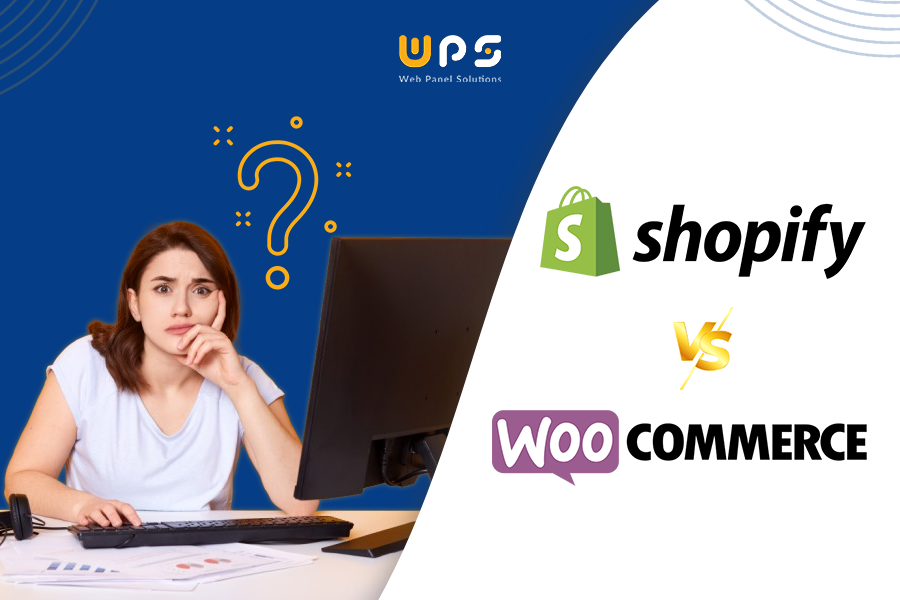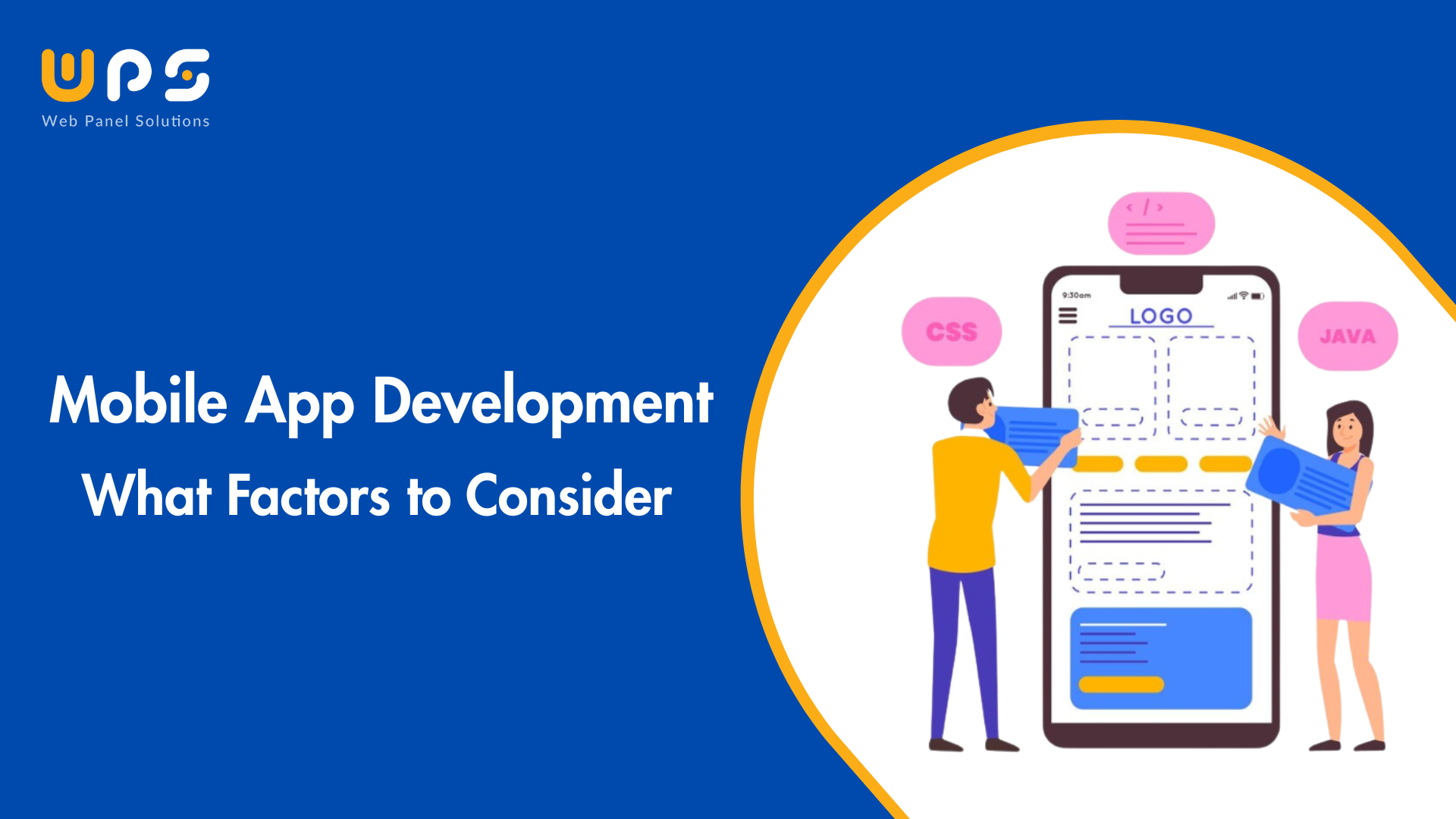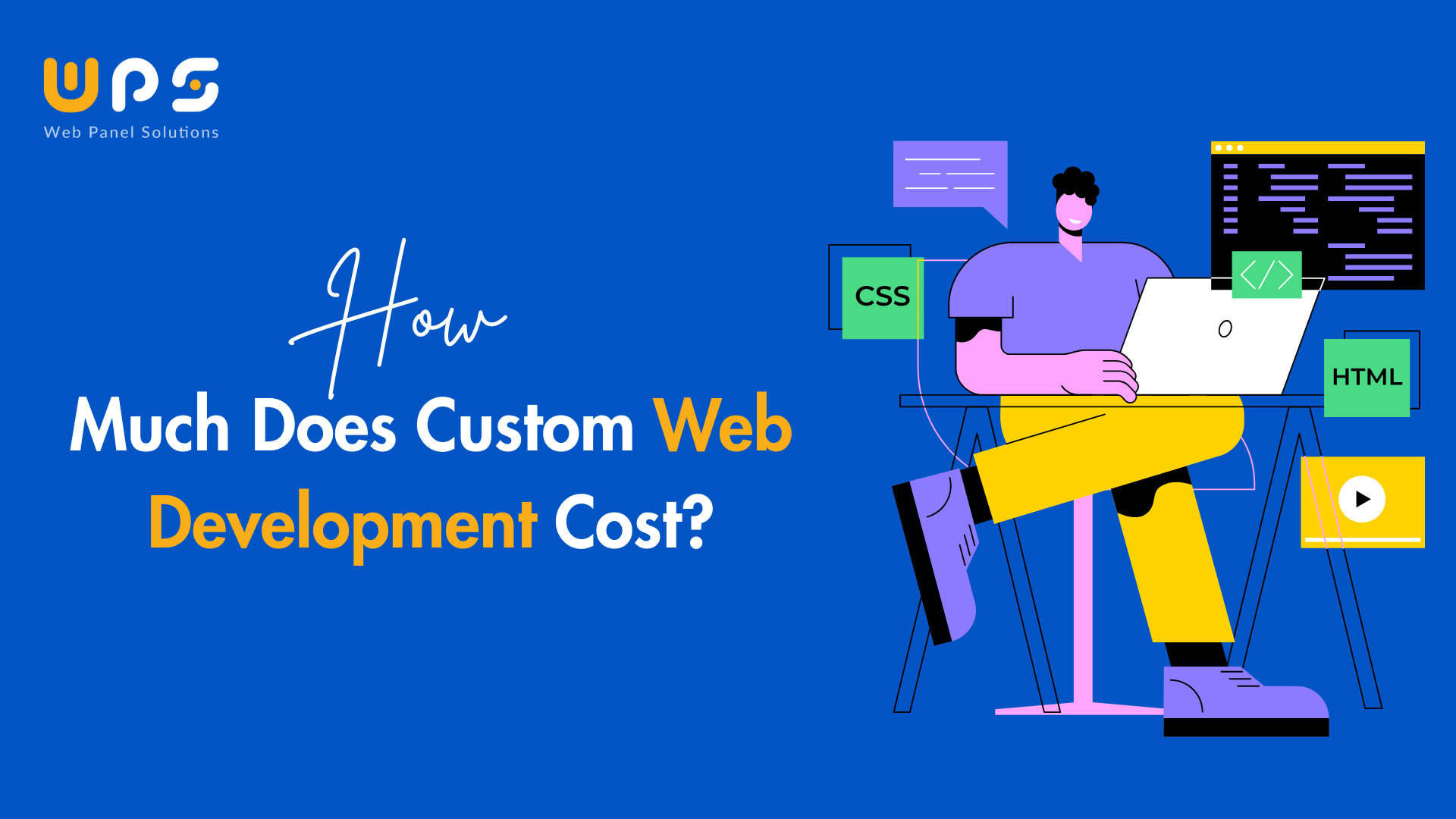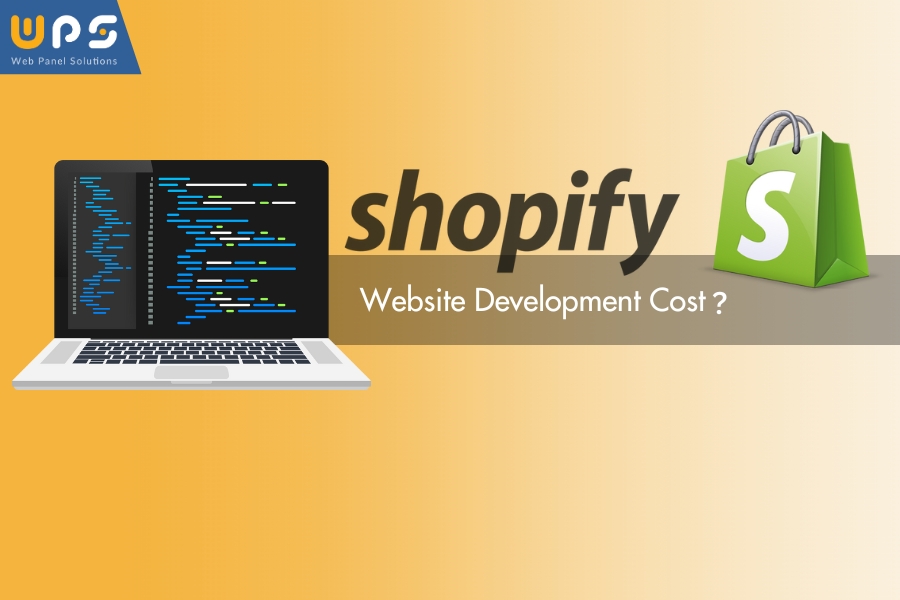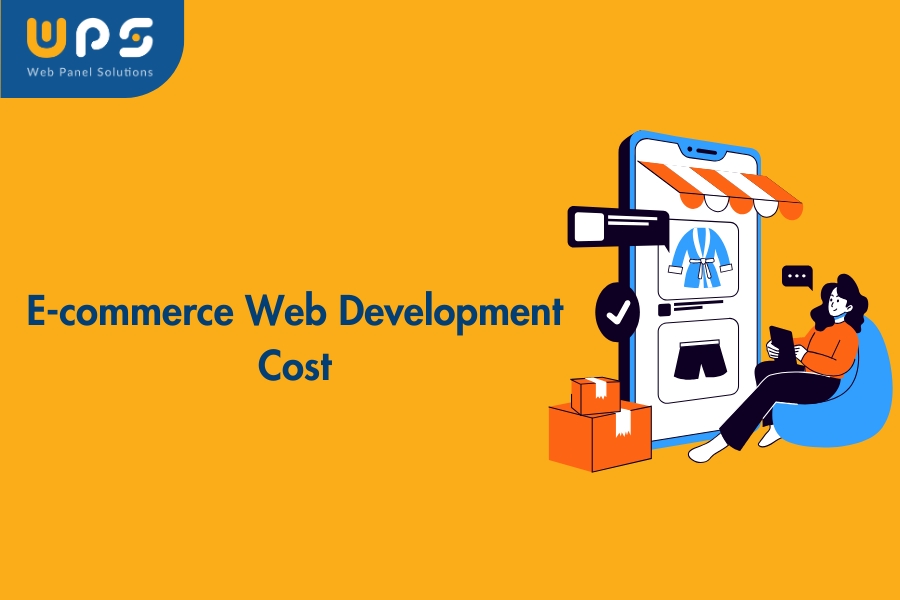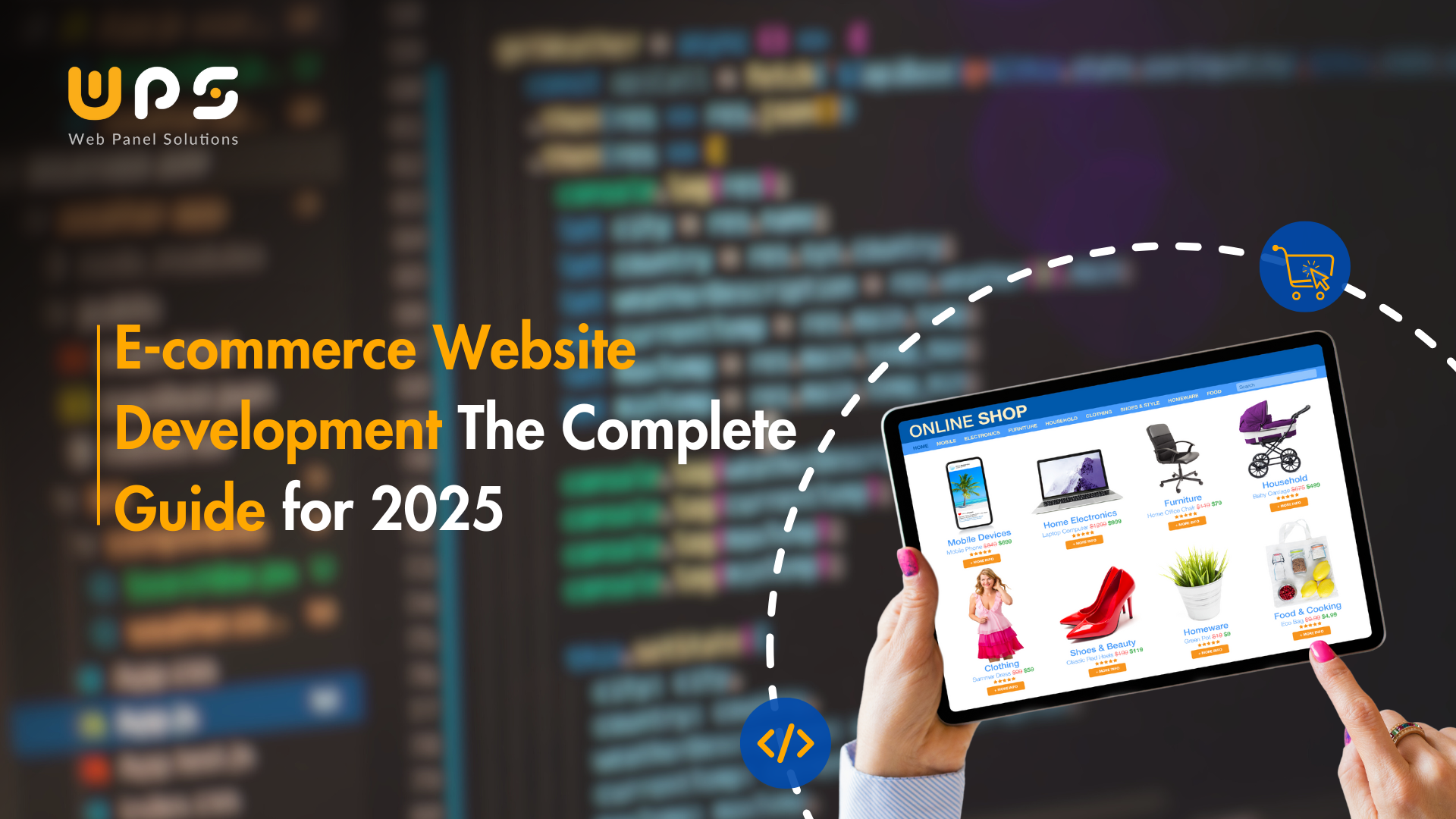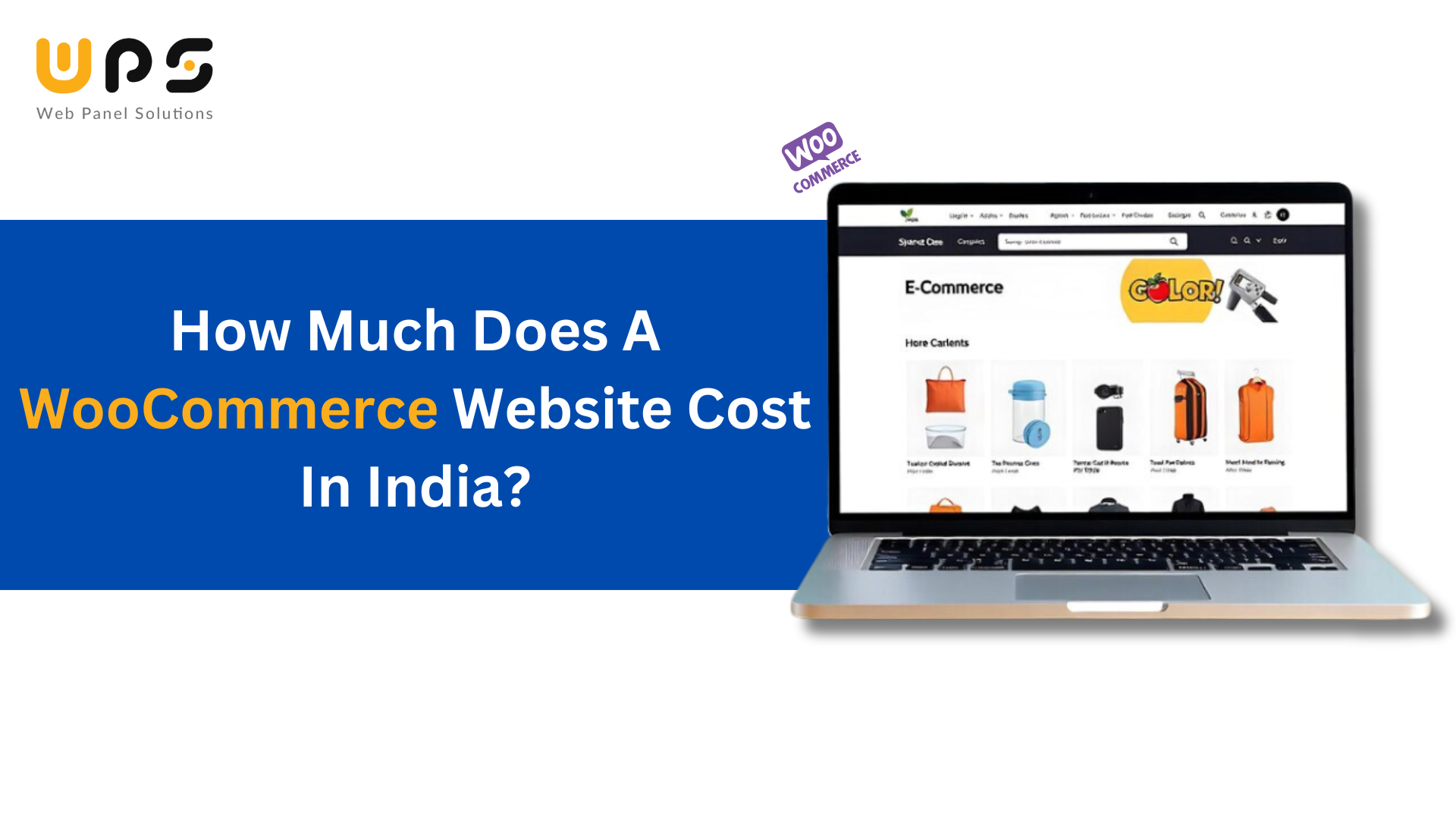Shopify vs Woocommerce:- Which is Best?
4 min read
03rd October, 2024
For e-business, selecting suitable software can be a real game changer in the online market. Two giants stand tall in this digital landscape: Shopify and WooCommerce. All claim to be the best solution for your online store, but which is the best?
Whether you are an amateur in the business world or an experienced businessman planning on taking your business online, this age-old question deserves your attention. In this Shopify vs WooCommerce comparison covering all aspects, we will explore the features, pros and cons, and capabilities of these two platforms. Here it is pertinent to mention that, Web Panel Solution provides both Shopify, and woocommerce website development services.
Shopify Overview
Shopify is an online hosted cart solution that provides end-to-end solutions for businesses selling products online. It was started in the year 2006 and has expanded its operation to provide power to over one million businesses across the world. The features of Shopify are easy to use, easy to customize templates, secure payment gateway and shipping facilities.
The platform provides users with several plans depending on the size of the business. The Shopify basic plan can cost as low as $29/month while the Shopify Plus has even more features at a relatively higher price. The basic plan includes the most necessary tools for e-commerce such as products, orders, and customers.
Shopify is relatively unique in that it provides hosting, security, and updates for your store. It provides a very large application store with over six thousand extensions to broaden capability. This platform also has a customer support service that is active 24/7 through phone calls, emails, and chat. To more about this, contact Web Panel Solution- Shopify website development agency.
WooCommerce- Overview
WooCommerce is an open source plugin for online selling that is integrated with WordPress which was started in 2011. It is now owned by Automattic the company that is also behind WordPress. com. WooCommerce is a plugin that converts any WordPress site into a complete and functional online shop.
While Shopify has some benefits, it should be noted that WooCommerce is a free platform to download and use. Nonetheless, expenses are incurred in web hosting, domain registration, and possible premium add-ons. It provides a lot of flexibility and users can change anything they want within their store.
It connects to the WordPress ecosystem of themes and plugins which provides practically endless extensibility to the platform. It does not have direct customer services but the users get to interact with a large number of developers and there is a lot of documentation available.
It is suitable for those who already have experience with WordPress or those who want the ability to customize their WooCommerce store to the greatest extent. You can reach out to us for woocommerce website development services.
Comparison of Key Aspects
1. Ease of Use
Shopify: It is more favorable for the user, especially the new user. It's easy to use and offers a step by step guide to help a user create an online store in the shortest time possible.
WooCommerce: Has a steeper learning curve, especially for those who are not so fluent in WordPress. It is not complicated but it does need a bit of technical know-how to get it right and running.
2. Customization and Flexibility
Shopify: A good flexibility of customization can be achieved by the use of its theme editor and the Liquid templating language.
WooCommerce: Offers ultimate flexibility. Because it is an open-source solution, users are provided with the core code of the application and can change every aspect of the store.
3. Payment Gateways and Transaction Fees
Shopify: It supports over 100 payment gateways for accepting payments from clients. However, the third-party payment processors have an added transaction cost of 0. 5% to 2% for the plan.
WooCommerce: Allows linking the service with popular payment systems and does not have its commission rates. Consumers are only charged the cost set by the payment processor of their preference.

4. SEO Capabilities
Shopify: Offers good in-built SEO tools such as the ability to set individual title tags, meta descriptions, and URLs.
WooCommerce: Builds on WordPress’s very good out-of-the-box SEO performance. By using applications like Yoast SEO, users can manage the specific settings of SEO for their store, which could be an advantage for WooCommerce here.
5. App Ecosystem and Integrations
Shopify: Has a large, filtered application store of over 6000 apps which are categorized according to their uses. The majority are premium, which may lead to higher total expenses.
WooCommerce: Advantages from a huge number of plugins for WordPress (more than 55,000 plugins). Not all of these are e-commerce specific but it opens up a lot of possibilities for added functionality with the help of woocommerce website development services.
6. Customer Support
Shopify: Offers customer support through phone, email, and live chat for all its plans and this is available round the clock.
WooCommerce: Being an open-source and free application, it does not have dedicated customer support services. Support is sought from the community and documentation and third-party developers.
7. Scalability
Shopify: This is usable for most businesses and can easily handle further traffic and sales increases.
WooCommerce: Provides great extensibility, which is only restricted by the hosting platform. If WooCommerce is optimized correctly and hosted on a reliable web host, it can handle stores at the enterprise level.
Pros and Cons of Using Shopify, and Woocommerce
Shopify Pros:
- Convenient for the users and does not require professional installation
- The all-in-one package provided is where the client is hosted as well.
- 24/7 customer support
- Robust and safe environment
- They should also be updated and improved frequently.
Shopify Cons:
- Transaction fees for all other payments that are not from Shopify
- Less flexibility in customization as compared to the open-source solutions.
- Can get costly with the additional features.
WooCommerce Pros:
- Available for download and use at no cost
- Very versatile and adaptable
- No transaction fees
- Excellent SEO capabilities
- Big community and a lot of plugins are available
WooCommerce Cons:
- Steeper learning curve
- Needs a different hosting and security mechanism
- There is no direct support for the customers.
- Expenses can be incurred with the paid themes and plugins
Conclusion
The decision to go with Shopify or WooCommerce depends on your requirements, experience, and vision for the future. Shopify is a perfect choice for those who have no time to deal with numerous settings and do not want to face possible issues, on the other hand, WooCommerce is the best choice for people who like to control everything and are ready to face some challenges.
Just bear in mind that there are no definitive solutions in this case. Compare the most important objectives, think about your capabilities, and choose the platform that is closest to your idea. Either way, the rewards for e-commerce are there for those who dare to jump in. For any help contact Web Panel Solution. We offer both Shopify, and woocommerce website development services.






